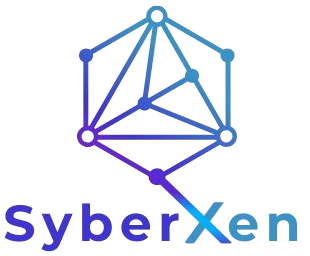In an era where data breaches and cyber threats are on the rise, businesses must prioritize cybersecurity not only to protect their assets but also to comply with a growing number of regulations. Compliance with these regulations is essential for maintaining customer trust, avoiding hefty fines, and ensuring the long-term sustainability of an organization. This blog aims to explore the landscape of compliance in cybersecurity, highlight key regulations, and provide actionable steps for businesses to navigate these complex requirements.
Understanding the Compliance Landscape
Compliance in cybersecurity refers to the adherence to laws, regulations, and guidelines designed to protect sensitive data. Various industries face different compliance requirements based on the nature of their operations, the type of data they handle, and the geographical locations in which they operate. Here are some of the most significant regulations impacting cybersecurity:
1. General Data Protection Regulation (GDPR)
The GDPR is a comprehensive data protection regulation in the European Union that mandates organizations to protect the personal data and privacy of EU citizens. Key requirements include obtaining consent for data collection, implementing data protection measures, and ensuring individuals have rights over their personal data.
2. Health Insurance Portability and Accountability Act (HIPAA)
HIPAA is a U.S. regulation that sets standards for protecting sensitive patient health information. Healthcare organizations must implement stringent security measures to safeguard electronic health records (EHRs) and ensure patient privacy.
3. Payment Card Industry Data Security Standard (PCI DSS)
PCI DSS is a set of security standards aimed at protecting credit card information during and after a financial transaction. Any organization that handles credit card transactions must comply with these standards to avoid data breaches and protect customer information.
4. Federal Information Security Management Act (FISMA)
FISMA requires federal agencies and their contractors to secure information systems. Organizations must develop, document, and implement information security programs to protect government information.
The Role of Cybersecurity in Compliance
Strong cybersecurity measures play a vital role in achieving compliance with various regulations. By implementing effective security practices, organizations can protect sensitive data and ensure they meet regulatory requirements. Here are some best practices that contribute to compliance:
1. Data Encryption
Encrypting sensitive data protects it from unauthorized access. Organizations should implement encryption protocols for data at rest and in transit to ensure that even if data is intercepted, it remains unreadable without the proper decryption keys.
2. Access Control
Implementing strict access control measures ensures that only authorized personnel can access sensitive information. This includes role-based access control (RBAC), multi-factor authentication (MFA), and regular reviews of user access permissions.
3. Regular Security Audits
Conducting regular security audits helps organizations identify vulnerabilities and areas for improvement. These audits can assess compliance with regulations and highlight potential security gaps that need to be addressed.
4. Incident Response Plan
Having a robust incident response plan in place is crucial for managing data breaches effectively. Organizations should prepare for potential incidents by defining roles, establishing communication protocols, and outlining steps for containment and recovery.
Steps to Achieve Compliance
Achieving compliance can be a complex and ongoing process. Here are some actionable steps businesses can take to navigate the regulatory landscape:
1. Conduct a Compliance Assessment
Begin by conducting a thorough compliance assessment to understand which regulations apply to your organization. This involves evaluating your current practices, identifying gaps, and determining the necessary steps to meet compliance requirements.
2. Develop Policies and Procedures
Create comprehensive policies and procedures that outline how your organization will meet compliance standards. This should include data protection policies, incident response plans, and employee training programs.
3. Implement Security Measures
Put in place the necessary security measures to protect sensitive data. This may involve investing in cybersecurity technologies such as firewalls, intrusion detection systems, and encryption tools.
4. Train Employees
Educate your employees about compliance requirements and the importance of cybersecurity. Regular training sessions can help staff recognize potential threats, understand data handling procedures, and follow best practices.
5. Monitor and Review
Compliance is not a one-time effort; it requires ongoing monitoring and review. Regularly assess your security measures and policies to ensure they remain effective and aligned with evolving regulations.
Conclusion
Navigating the complexities of compliance and regulatory requirements in cybersecurity is essential for businesses in today’s digital landscape. By understanding the key regulations that impact your organization, implementing robust cybersecurity measures, and fostering a culture of compliance, you can protect sensitive data and maintain customer trust.
In an age where cyber threats are pervasive, prioritizing compliance not only helps you avoid penalties but also strengthens your overall security posture. Take proactive steps today to ensure your organization is compliant and prepared for the challenges ahead. If you need assistance in developing a compliance strategy. Contact us today to learn more about our Compliance and Regulatory Support services.
Stay informed and gain the competitive edge by diving into our 2024 Digital Marketing Trends report.



Comments (2)
Riva Collins
It’s no secret that the digital industry is booming. From exciting startups to need ghor
global and brands, companies are reaching out.
Oliva Jonson
It’s no secret that the digital industry is booming. From exciting startups to need ghor
global and brands, companies are reaching out.